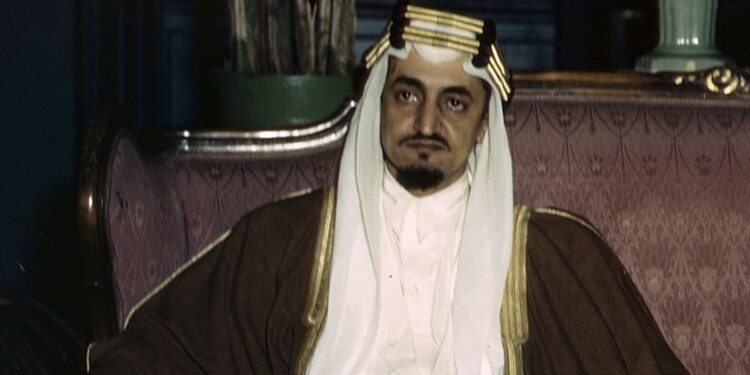King Faisal bin Abdulaziz Al Saud, the third ruler of Saudi Arabia, left an indelible mark on the kingdom during his reign from 1964 until his assassination in 1975. His leadership was characterized by modernization initiatives, diplomatic prowess, and a commitment to Islam.
Born in Riyadh in 1906, Faisal was a pivotal figure in the transformation of Saudi Arabia into a modern state. Upon ascending to the throne, he introduced a series of reforms aimed at modernizing the country’s infrastructure, education system, and economy. Under his rule, Saudi Arabia witnessed significant development in areas such as healthcare, education, and industry, laying the foundation for the kingdom’s future prosperity.
Faisal was also known for his diplomatic acumen and played a key role in shaping Saudi Arabia’s foreign policy. He maintained close ties with the United States, forging a strategic partnership that endures to this day. This relationship was particularly significant during the Cold War era, as Saudi Arabia emerged as a key ally of the West in the Middle East. Faisal’s diplomatic efforts helped to bolster Saudi Arabia’s position on the world stage and secure its interests in the region.
One of Faisal’s most notable achievements was his role in the formation of the Organization of Petroleum Exporting Countries (OPEC) in 1960. As oil prices became a major geopolitical issue, Faisal recognized the importance of cooperation among oil-producing nations to assert control over their natural resources. Under his leadership, Saudi Arabia emerged as a leading voice within OPEC, advocating for fair oil prices and greater sovereignty over oil production.
Faisal was also a staunch defender of Islam and sought to promote the kingdom’s religious values both domestically and internationally. He oversaw the expansion of Islamic institutions and supported efforts to spread the teachings of Islam around the world. Additionally, Faisal played a key role in mediating regional conflicts and promoting peace within the Muslim world.
Despite his achievements, Faisal’s reign was not without challenges. His efforts to modernize Saudi society faced opposition from conservative elements within the kingdom, leading to tensions between traditional and modernizing forces. Moreover, Faisal’s support for pan-Arabism and Palestinian self-determination strained relations with neighboring countries, particularly Israel and Egypt.
Tragically, Faisal’s life was cut short when he was assassinated by his nephew in 1975. However, his legacy continues to resonate in Saudi Arabia and beyond. Faisal is remembered as a visionary leader who steered his country through a period of rapid change and transformation. His contributions to Saudi Arabia’s development, his diplomatic achievements, and his commitment to Islam have left an enduring legacy that continues to shape the kingdom’s identity and trajectory.
newshub



Recent Comments